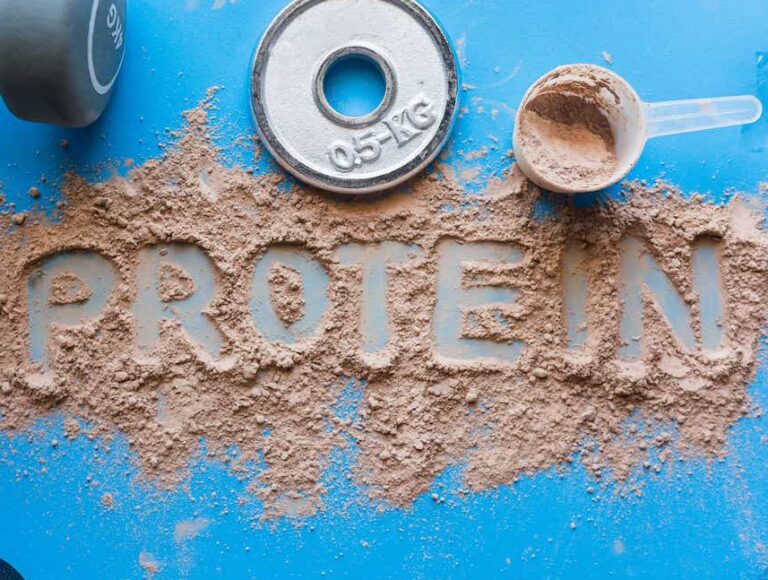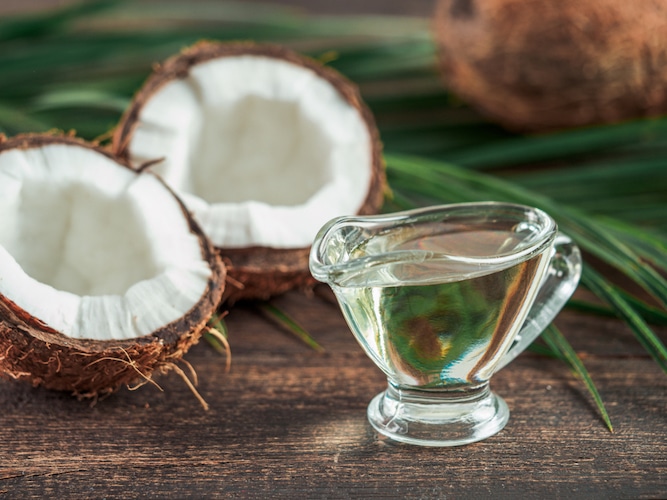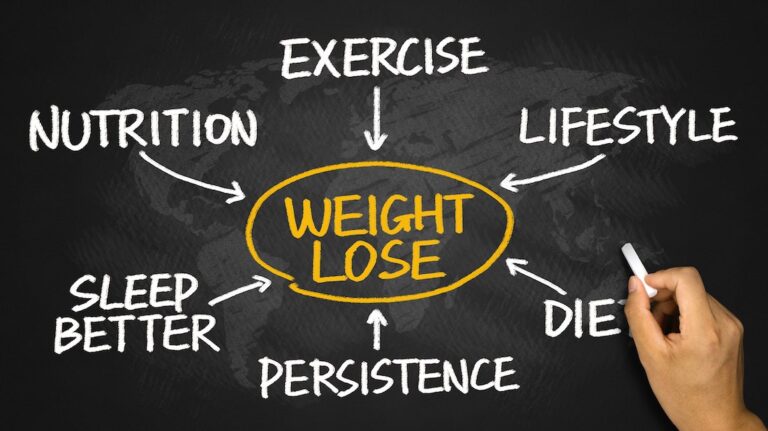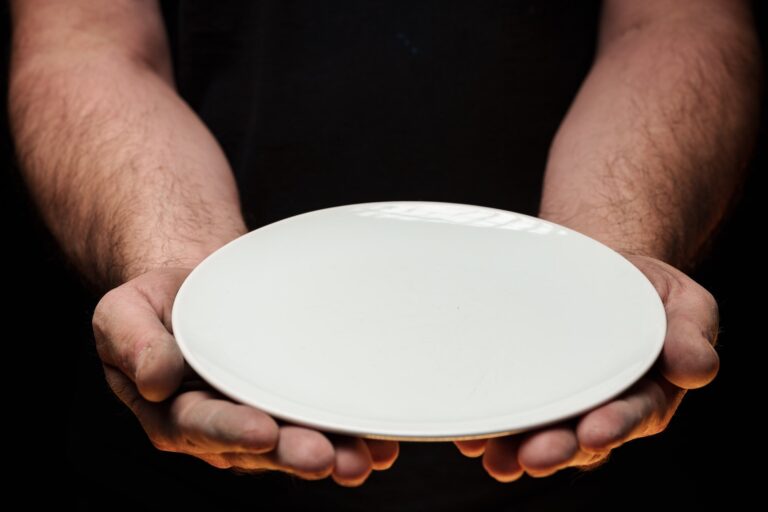When you’re standing in front of the shelves at the grocery store, it can be challenging to know what to choose. It has been said that the intake of saturated fat should be limited because it increases the risk of cardiovascular disease. At the same time, you see that there is a pandemic of obese people and record-breaking demand in hospitals. What is really right?
Saturated fat in the diet has been demonized for many decades. However, recent studies have begun to challenge this perception. It is true that saturated fatty acids can increase LDL cholesterol in the blood. However, it is important to understand that there are different types of LDL cholesterol and not all of them are harmful.
This means that although saturated fat can affect cholesterol levels, it may not necessarily increase the risk of cardiovascular disease to the same extent as previously thought. Among other things, several studies show that saturated and unsaturated fat have different effects on the body, and it is more important to focus on the overall quality of the fat you consume, rather than avoiding saturated fat completely.
Reduced fat foods
In many products labeled as “low fat”, the fat is often replaced with sugar or other fillers, which can be worse for your health. Paradoxically, these products may increase the risk of cardiovascular disease rather than reduce the risk.
Another thing to consider is foods that are high in saturated fat, such as processed meat. Although they may contain saturated fat, they also contain other harmful substances that may actually be the real reason for their negative health effects.
So, while it’s important to be aware of your saturated fat intake, it’s also important to take a holistic approach to your diet. Eating less saturated fat may be a good idea for some, but it doesn’t necessarily mean you should avoid it completely.
Fat is not the enemy you’ve been told
The fact is that fat is not necessarily the enemy we’ve been told it is. There is a difference between different types of fat, and some are actually necessary and healthy for our bodies. In fact, some types of fat are essential to keep our bodies in balance and to maintain good health. It’s also worth mentioning that fat-reduced options are rarely the best choice. Often the natural fat is replaced with other ingredients that can be harmful to our bodies, such as artificially produced vegetable oil. It can also lead us to eat more of the product to experience the same feeling of fullness, which in turn can lead to excess sugar and carbohydrate intake.
But I’ve been told to replace real butter with plant oils and reduced fat products?
The modern dietary advice to reduce fat and increase the intake of refined products such as vegetable oil and carbohydrates may have been wrong all along. How long have we been told that we should avoid high-fat foods and instead choose products that are ‘low-fat’ or ‘fat-free’? How many of us have chosen margarine instead of real butter because we’ve been told it’s healthier?
It now turns out that this advice may have been more harmful than we could have imagined. Reducing your fat intake and increasing your intake of refined products such as vegetable oil and carbohydrates can actually lead to an increase in body fat and an increased risk of heart disease and diabetes. That’s because these refined products break down in the body differently than whole foods, and can lead to inflammation and insulin resistance. A balanced diet with the right amount of protein is always important.
Consumption of vegetable oils is skyrocketing
As the graph shows, consumption has skyrocketed since 1980 in terms of global consumption of vegetable oils. This is the same time that lifestyle diseases from chronic inflammation have reached record after record despite rapid developments in healthcare. But still to this day, every day patients with high blood pressure, diabetes and cardiovascular disease are advised to use fat reduced plant oil butter and not real butter.
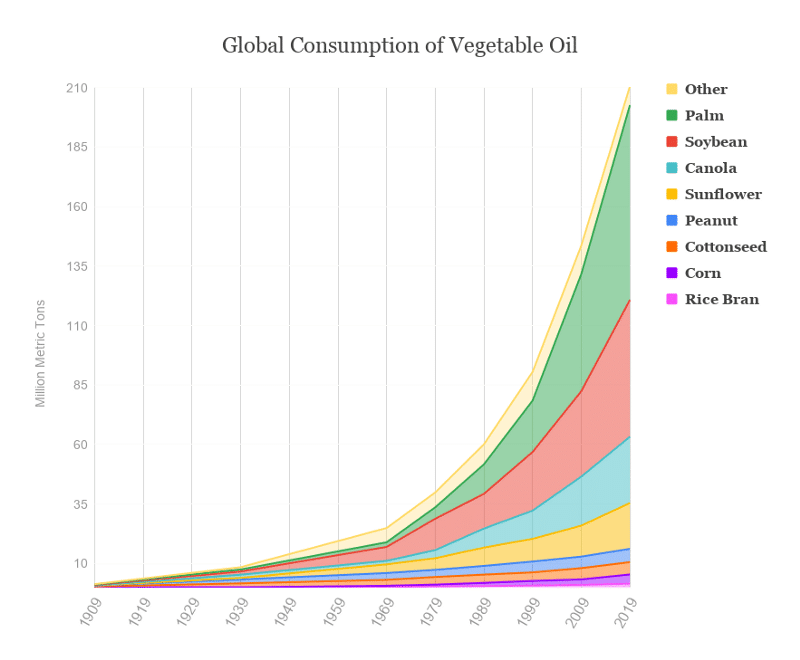
Is there a link between the type of fat we eat and heart disease?
As you can see from the chart here, there has been a clear link between heart disease and plant oil consumption in the US. The fact that deaths from heart disease declined somewhat after 2000 may be due to major developments in surgery and the possibility of saving people with blocked arteries and heart attacks.
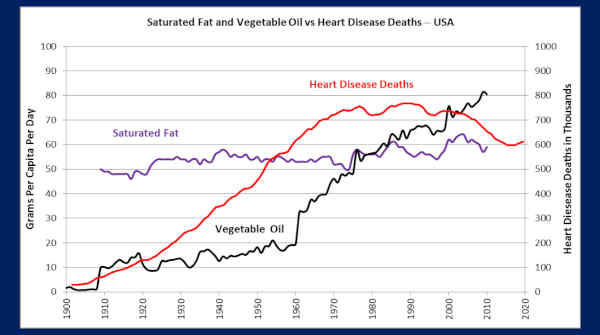
Are all fats bad for us?
There has long been a widespread misconception that all types of fat are bad for us. We’ve been told to avoid foods that contain saturated fat and instead replace it with healthy alternatives such as plant oils and carbohydrates. But it turns out that this advice may have been completely wrong. By vegetable oils, we mean so-called trans fats, which are oils and fats made at refineries. Like margarine, sunflower oil, rapeseed oil. Ingredients you don’t read the table of contents eat huge amounts of in almost everything you eat. Consumption of vegetable oils has skyrocketed over the last fifty years.
But saturated fat is unhealthy?
It is important that you understand that not all fats are equally harmful to the body. While trans fat can indeed be harmful, saturated fat is probably not as bad as we’ve previously been told. In fact, the right amount of saturated fat can actually be healthy for us, but it’s also important to remember that not all fats are equally healthy. Eating foods high in healthy fats, such as avocados, nuts, cold-pressed olive oil and fish, can actually help reduce inflammation in the body and improve heart and brain health.
Eat healthy natural fat sources with a clear conscience.
So what does this mean for us? This means we need to rethink modern nutritional advice and focus on eating whole foods with healthy fats, proteins and less carbohydrates in the right balance. It means choosing foods with fats that are not processed and that do not contain a list of ingredients that we cannot pronounce. Cold-pressed oil and real butter are natural products.
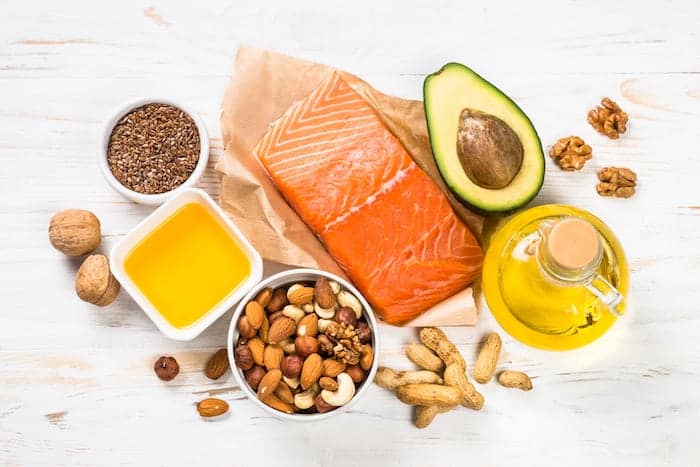
Fat and low-carb diet with intermittent fasting
If you’re considering trying the keto diet or intermittent fasting, it’s important to understand that fat plays an important role in both of these diets. When you eat keto food, you eat high-fat, low-carbohydrate foods. This helps to put your body into ketosis, where your body burns fat as an energy source instead of carbohydrates.
Fat is an important source of energy for your body, and it also provides building blocks for cell membranes and hormones. By choosing foods with healthy fats such as avocado, nuts and cold-pressed olive oil, you can also help reduce inflammation in the body and improve heart and brain health.
Remember that fat is an important part of a healthy version of a low-carb diet combined with intermittent fasting. Choose healthy fats and include them in your diet for the best possible results. Also note that it’s important to find a diet that suits you and your lifestyle, so talk to a nutritionist or doctor before making any major changes to your diet.
Frequently Asked Questions
How does the body use fat as energy?
Let me give you another picture to help you understand how your body stores fat. Think of your body as a giant warehouse, where everything you eat is stored away. When you eat high-calorie food, your body puts it away as a store of food for later use. This storage is like an account that you can draw from when you need energy, but when the account is full, your body will start storing the surplus as fat. So when you eat too much, your body will replenish its storage until it’s completely full, and anything left over will be stored as fat in the most undesirable places on your body. It’s like trying to fit all your clothes into a full suitcase before a vacation and ending up having to carry an extra bag with you all the time.
Metabolically Flexible
But don’t despair, because there are ways to empty your stock. You can “train” your body to use up stored fat by eating healthy food, fasting and exercise. So instead of being a suitcase bursting out of all sides, your body can become like a nice, tight backpack. It’s all about teaching your body to use energy efficiently and letting your body use the gas tank and not direct injection all the time, you can be absolutely sure that once you’ve learned the changes, your body will thank you for it.

